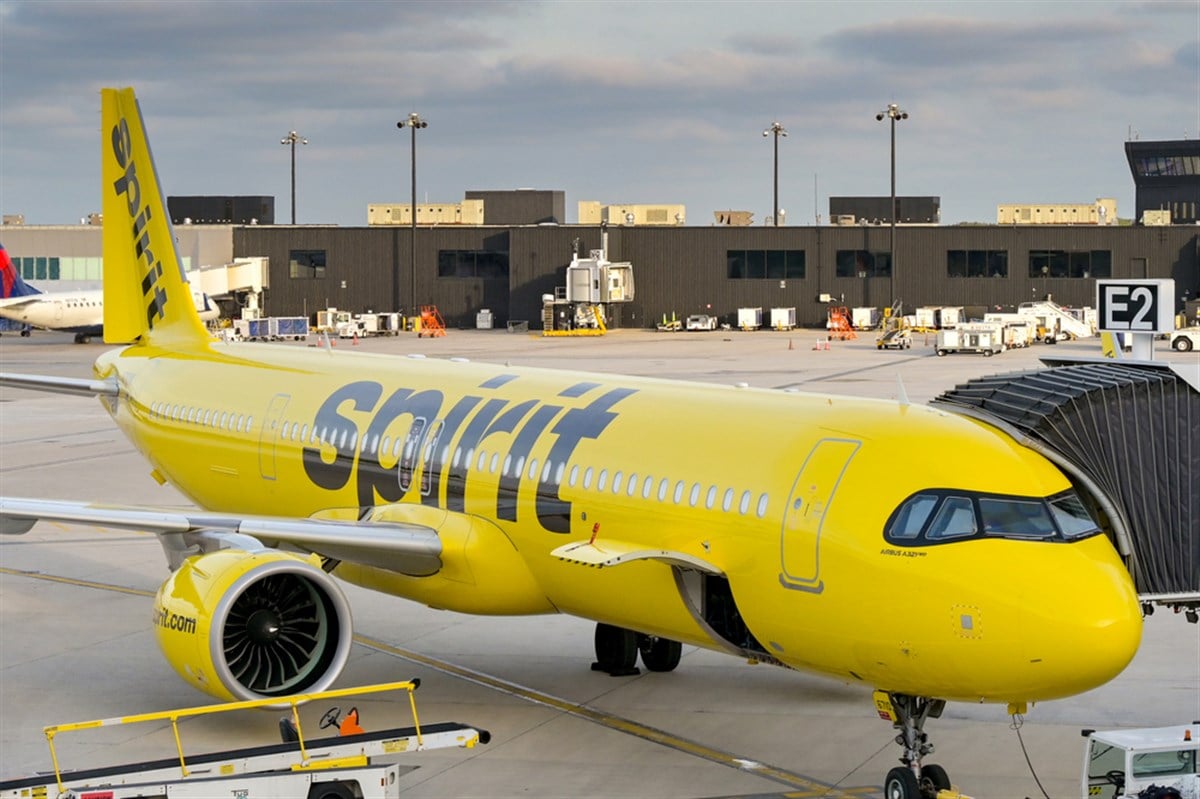
Transportation stocks typically indicate the economy's current state, while airline stocks gauge the consumer cycle's direction instead. Recently, shares of Spirit Airlines Inc. SAVE have nearly doubled after the company struck a new deal to help keep its debt burden flexible ahead of bond maturities in 2025.
The stock market was excited about giving the airline more breathing room. Still, is that pivot in the company's capital structure enough to keep the momentum going and give Spirit Airlines clear skies ahead? While the answer is not that clear, there is one trend and fact investors can lean on moving forward.
The risk-to-reward scale is definitely favoring the bulls and not the bears, especially considering where Spirit Airline's market capitalization sits today compared to peers like Delta Air Lines Inc. DAL and even regional-focused carrier Southwest Airlines Co. LUV. More than that, the price today doesn't offer much upside for short sellers compared to the massive spike it can have for bulls if they land on the right side of the trade; here's how that could play out.
Could Spirit Airlines Turn into a Pain Trade for the Markets?
A pain trade occurs when too many investors are aligned on one single view, whether that’s bullish or bearish. Then, the market takes a sharp turn in the opposite direction, sending these heavy holders running for the exits all at once. When this happens, retail investors can exploit very sharp moves as long as they land on the right side.
Breaking down the pain trade in Spirit Airlines requires investors to consider a few drivers, specifically sentiment. From Wall Street, all analysts seem to be going for a bearish narrative in Spirit Airlines stock as they shoot for a consensus price target of as low as $2.5 a share.
Today’s perceived valuations by Wall Street analysts suggest that Spirit Airlines stock could see a 10% decline from where it trades at today, giving up a significant portion of its recent gains. More recently, those at Susquehanna placed their targets at an even lower $1.5 a share.
Then there’s the short interest. Short sellers increased their positions by 13% over the past month alone, increasing the risk of a potential pain trade in Spirit Airlines on a big enough catalyst. To begin measuring just how big the upside could be on this pain trade pivot, investors need to put on their banker hats.
Spirit Airlines's market capitalization is only $310 million on a comparable basis, significantly lower than the airline industry’s average size of $20.1 billion. This size discrepancy is also seen in the stock’s price-to-book (P/B) discount, as it trades at only 0.3x compared to the industry’s average of 2.2x.
Investors are facing a near 90% discount to the industry, which is one thing to lean on when considering the next giant time bomb waiting to go off for Spirit Airlines stock.
A New Buyer for Spirit Airlines: What Could the Potential Bid Be?
Surprisingly, Spirit Airlines has a new potential buyer coming from one of its regional carrier peers. Frontier Group Holdings Inc. ULCC is now reportedly in talks with Spirit Airlines to explore a merger, and the buy price will be of the utmost importance for investors considering this pain trade today.
There isn't any news specific to price ranges regarding Frontier's offer. Still, there are a few pointers investors can keep in mind when evaluating its reality. First of all, the debt restructure that just took place, that single pivot, adds some value and quality in the form of more flexible cash flows.
Any severe buyer would consider that change. Still, there's also a discount on book value at Spirit Airlines. Were this a software or technology stock, this book value wouldn't matter much because it would mainly consist of intangibles and brand names.
For airline stocks, the book value is represented by tangible goods and agreements like aircraft and flight path rights. This is why most of the industry trades at higher P/B multiples. Frontier Group trades at 3.1x P/B, so investors could consider that Spirit Airlines' P/B could be at least 0.75x to offer Frontier an attractive buy deal.
Assuming this is true, and by all logical reason, it should be, Spirit Airlines stock could rise by at least threefold, considering the low P/B multiple today. This is not too far from reality, as bold as it sounds, considering Spirit Airlines stock trades at only 16% of its 52-week high price of $16.6 a share when the P/B was roughly 1.2x.
Few in the market agree with this bullish view, and that's where investors can gain an edge in what could turn into a pain trade: a threefold return on Spirit Airlines stock.
The article "Spirit Airlines Stock Nearly Doubled: Are Clear Skies Ahead?" first appeared on MarketBeat.
© 2025 Benzinga.com. Benzinga does not provide investment advice. All rights reserved.
Trade confidently with insights and alerts from analyst ratings, free reports and breaking news that affects the stocks you care about.